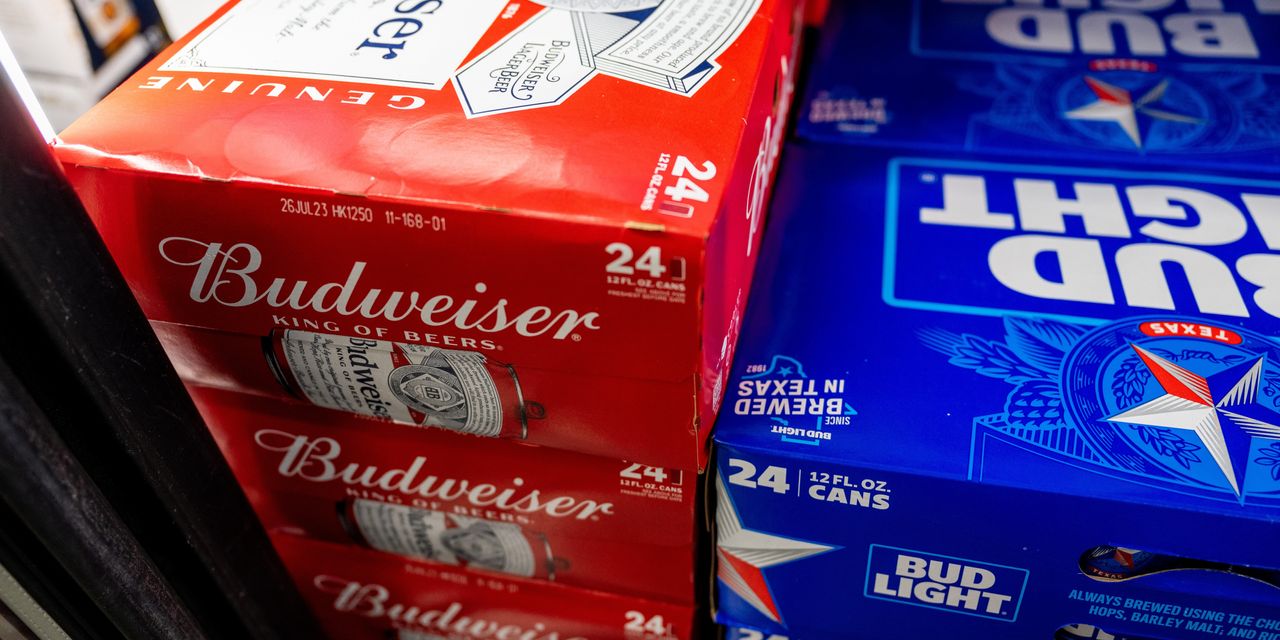Sales of Bud Light fell for a sixth straight week following the uproar over the brand’s partnership with trans influencer Dylan Mulvaney, new industry data show, with some analysts saying that time was running out to turn sales around, and others predicting a discount battle the likes of which has not been seen since 2005.
Bud Light volumes — a measure of liquid sold — for the week ending May 13 fell 28.4%, following a 27.7% drop the week before, according to the trade publication Beer Business Daily, which analyzed Nielsen IQ data.
In at least one store, the publication said, a Bud Light 24-pack was priced as low as $3.49.
“This could be a promotional summer the likes [of which] we haven’t seen since after Hurricane Katrina in 2005, where there was so much beer inventory backed up in the trade that it initiated the price war of all price wars, which ended with InBev being about to initiate a hostile takeover of [Anheuser-Busch] two years later after its market cap cratered,” Beer Business Daily said.
The publication said that steep price-cutting battles are often spurred by outside events, like a hurricane or, in this case, anger over the partnership with Mulvaney. The difference this time, it said, was that “the external event is only negatively affecting one brewer.”
The publication said that volumes were down for Budweiser, Busch Light and Michelob Ultra — beer brands owned by Bud Light’s parent, Anheuser-Busch InBev. However, volumes rose for rivals like Coors Light
TAP,
Miller Lite and Pabst.
Bump Williams, president and chief executive of Bump Williams Consulting, said over email that if Bud Light couldn’t turn sales around by the Memorial Day weekend — generally a holiday featuring plenty of grilling and beer drinking — “then this brand and the entire [AB InBev] portfolio is in serious jeopardy of losing their consumer base forever.”
Demand for light beer has been falling for years as craft beer, seltzer and other alternatives draw younger drinkers. And Coors Light — among the brands that has seen a bump in demand from the Bud Light backlash — has, like other brands, run campaigns supporting LGBTQ people in the past.
Experts say that politically led social-media boycotts typically evaporate quickly, and that marketers are usually willing to suffer resistance from one demographic in order to win over a another in the longer term. But they also say that growing anti-trans sentiment among social conservatives and federal and state lawmakers — a number of states have recently banned gender-affirming care for minors — threatens to stretch the Bud Light boycott out for longer than normal.
Meanwhile, Florida Gov. Ron DeSantis went after Walt Disney Co.’s
DIS,
self-governing status after the company criticized a state law that bans discussion of sexual orientation or gender identity in public-school classrooms through the third grade. That measure — known as the “Don’t Say Gay” bill — is set to be expanded to all grades.
Josh D’Amaro, the chair of Disney’s parks division, said this week that the fight with DeSantis hasn’t hurt business.
The anger against Bud Light began last month over a handful of social-media posts by Mulvaney in which she was shown promoting Bud Light. But it was enough to stir outrage online, with musician Kid Rock posting video of himself shooting up several cases of the beer. Anheuser-Busch’s CEO weighed in — some said equivocated — saying: “We never intended to be part of a discussion that divides people.”
Shares of AB InBev
BUD,
inched 0.2% lower on Tuesday. The stock has largely fallen since April, when the backlash began, but it is still up 5.7% over the past 12 months.
JPMorgan analyst Jared Dinges, in a note on Tuesday, said that the focus for AB InBev investors “has shifted squarely to the potential impact from the Bud Light controversy, and away from prior debates such as Latin America earnings trajectory.”
But he said that any impact on U.S. demand trends was already priced into the stock, that the company’s earnings-per-share growth potential was still solid and that shares could get a bigger lift if the company’s second-quarter results came in better than expected. But he was downbeat on the months ahead.
“We do not expect the lost sales to be recovered in [fiscal year 2024] and a full U.S. recovery would provide 10% EPS upside to our current estimates,” he said.
He said that AB InBev already planned to make a bigger push in summer promotional campaigns after a shift away from doing so in the fall and winter. But he was skeptical on the ability to revive U.S. sales.
“We believe the declines will prove to be mostly sticky despite increased marketing spend from [AB InBev] over the summer, and we anticipate only a slight improvement in trends over the next 12 months,” he said. “We believe there is a subset of American consumers who will not drink a Bud Light for the foreseeable future.”
Read the full article here


